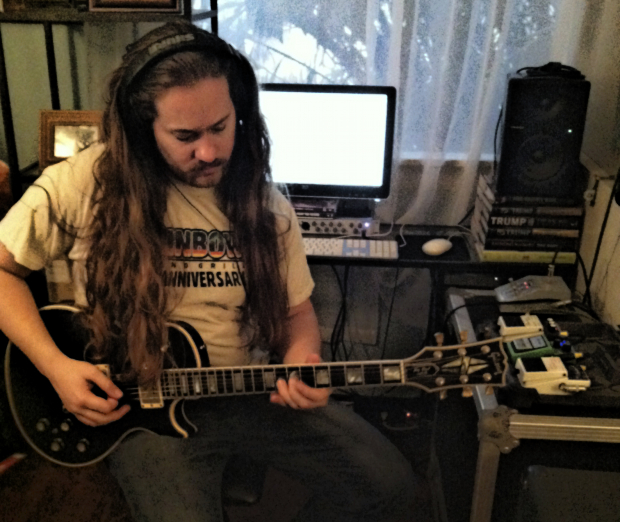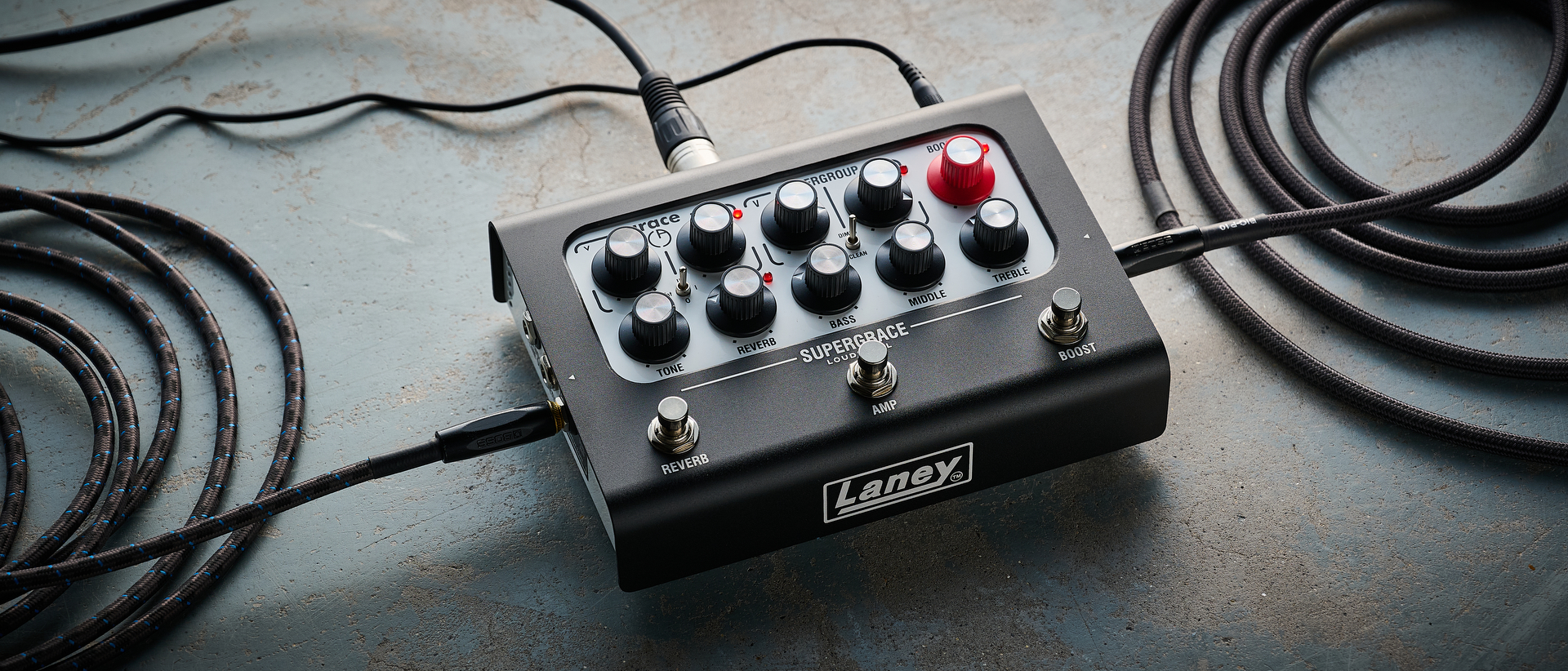Bent Out of Shape: Studio Diary, Part 1 — Pre-Production
All the latest guitar news, interviews, lessons, reviews, deals and more, direct to your inbox!
You are now subscribed
Your newsletter sign-up was successful

In the next couple of weeks, I'll be recording an album with White Wizzard (Earache Records) and wanted to give you some insight into the process of making a heavy metal album in 2013.
I'm going to talk about the whole process, from pre-production to mastering, and try to give you my take on each step.
Let's start at the beginning. The first stage is pre-production, which is when a band will take their song ideas and begin to finalize the arrangements, melodies, lyrics, etc., so that every song is fully prepared and ready to record.
For some bands, it may involve the whole band jamming in a rehearsal space until every musician knows their parts. For others, it may just be the main songwriters working together and then giving the finished songs to the rest of band to learn. Some bands may also produce demos of each song to get an idea for how the final product will sound. In White Wizzard, we decided to demo each song fully with myself being in charge of the pre-production/demo process. I basically became the engineer for the main songwriter in the band who recorded rhythm guitars and bass to a drum a machine.
By recording a demo for each song, you are basically doing a trial run for the real thing in the studio. Something that sounds good when jammed alone may not fit well in the context of the song when you can hear all the other instruments. These demos allowed us to experiment with different parts and layers until we were satisfied with each song.
We recorded all nine songs for our album and were then able to send mp3's to each member of the band as a reference to learn their parts. For me, as one of the lead guitarists, it was extremely beneficial to have the actual music to jam along to and write my guitar solos over. Having every song fully recorded will save you time and money by not having to experiment with ideas in the studio. You also will know the exact tempo for each song and have an exact tempo map for songs with multiple tempo changes.
When all the demos were finished, we gave them to our producer, Ralph Patlan (Megadeth, MSG). As a bonus, as each song was recorded to a click at the correct tempos, Ralph was able to use these demos as a frame to record the final tracks over. Usually a band will need to record guide tracks for each song so the drummer has something to play along to. Our drummer was able to play along to the demos we produced, which saved us a lot of time. On rare occasions, tracks recorded for demos will actually end up being used in the final song if the performance and quality is good.
All the latest guitar news, interviews, lessons, reviews, deals and more, direct to your inbox!
I highly recommend that musicians learn how to demo their songs and buy the necessary gear to do so. For songwriters it's a powerful tool to be able to record your ideas at home whenever you feel inspired. My home studio setup is very simple but effective. I have an Apple Mac with Logic Pro and a Firepod interface. My main tool is an isolation box I constructed and sound proofed to fit a Marshall 4x12, which I have close mic'd going into my interface.
I have several early Marshall JCM 800's which I can track at full volume and not disturb my neighbors — big bonus! The focus of my home studio is being able to track guitars with the best possible tone and quality. Next week, I'm going to discuss further in detail my guitar recording setup and keep you updated on the next stage of recording of White Wizzard's new album; instrument tracking.
Cheers!
Will Wallner is a guitarist from England now living in Los Angeles. He recently signed a solo deal with Polish record label Metal Mind Productions for the release of his debut album, which features influential musicians from hard rock and heavy metal. He also is the lead guitarist for White Wizzard (Earache Records) and in 2012 toured Japan, America and Canada. Follow Will on Facebook and Twitter.
